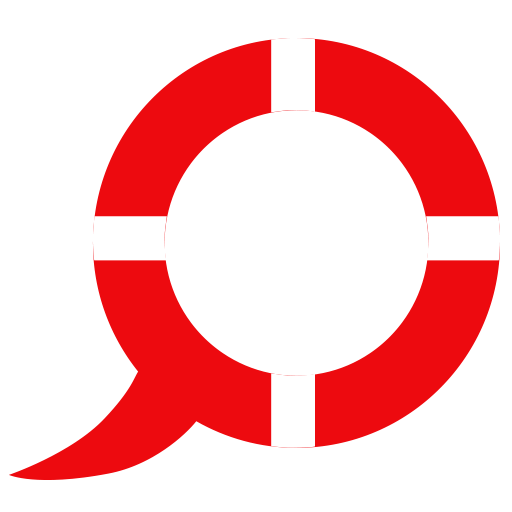Naperville speaker shares how to teach kids positive online behaviors
Raising kids who are bound to grow up online might seem foreign to parents whose early years came before the advent of Twitter, Snapchat, laptops and Internet access on smartphones. But a digital citizenship expert who shared her knowledge with parents in Naperville Unit District 203 says it’s not impossible for adults to model positive digital behavior and help kids develop good habits for their online personalities and electronic communications.
Albanian Children: Online, Unsupervised and at Risk
Children are vulnerable to predatory paedophiles and can too easily view pornography online, warn experts, yet access to parental control apps remains limited.
Celine Cooper: Protecting our children against online predators
On a cold night in February of 2015, police discovered the body of a young man named Yanick Paré. The 18-year-old from Asbestos had taken his own life in a wooded area not far from where he lived, leaving behind a suicide note. “I will always love you,” it read, “but I have to go. I can no longer be harassed on the Internet for astronomical sums of money because of a girl who was ‘cruising’ me and wants to create a scandal about me. If you see a video of me one day, know that all of it is false. I would never have done that.” The note contained three names of people he said were harassing him, including a woman named Sandra Roy.
Celine Cooper, Montreal Gazette
Children spending more time online than watching TV for the first time
Children in the UK are spending more time on the internet than in front of the TV for the first time, according to new research into the media habits of under-16s. Research firm Childwise found that on average five- to 15-year-olds were spending three hours a day using the internet, compared to 2.1 hours watching TV.
The UK is hardening its stance against kids watching porn online
Picture the following scenario: the UK government takes the country’s largest ISPs to court to force them to block access to porn sites, because website operators have refused to bring in age verification controls. Sound far-fetched? Perhaps. But it could come to that if porn sites brush aside the Tory government’s concerns about under-aged kids readily getting their hands on perfectly legal pornographic images and video from the Internet.
Moms work to bring down social media sites to protect kids following Nicole Lovell’s death
There has been a lot of talk about the role social media may have played in the Nicole Lovell case; however, police have not said anything to that effect. Investigators have only said the 13-year-old and David Eisenhauer knew each other before her death.
Kids, Safety and Social Media
Safer Internet Day is Tuesday, February 9th. To celebrate this important event, I want to do my part to move the conversation forward. How can we as a community work together to allow our kids the incredible potential of our connected world while also keeping them safe from harm? Whose responsibility is it to keep kids safe online? My answer: It is everyone’s. Here’s your role.
Denise Lisi DeRosa, The Huffington Post
Over 80% of UK Kids Exposed to Online Hate – Study
Over 80% of UK children have witnessed online hate over the past year with a quarter specifically targeted, according to a new study designed to raise awareness of these issues as global initiative Safer Internet Day (SID) kicks off today.
Phil Muncaster, Infosecurity Magazine
How the dark world of pornography is damaging kids’ lives forever
When eighteen-year-old Jake had his first sexual experience three years ago, he believed all the readily-available porn he watched had prepared him for the real thing. But instead of the plethora of sexual positions and experiences the teen might have imagined was awaiting, an awkward reality dawned on the adolescent.”
Could age checks really keep kids away from online porn?
Porn sites will soon need to check for proof of age before letting internet users view their sites. It was a manifesto pledge for the Tories in 2015, and today, the Department for Culture, Media and Sport launched a public consultation around its plans “to protect children from online pornography”.
Teenager speaks out about online sextortion
Two years of torture all started with a Facebook message. Now, a 16-year-old girl, who cannot be identified, is sharing her experience with online sextortion. “Once you take that picture, you can never get it back. It’s out there,”” she told CTV News. She said an innocent instant messaging conversation with another teenager quickly turned into sexual threats.
Michelle Gerwing, CTV Winnipeg
Keeping your children safe from online predators
After a Ravena man was arrested for allegedly trying to solicit a young teen online, a local father is offering tips on how parents should actively participate in their kids’ social media activity. Dan Dinsmore, president of Overit, caught a stranger messaging his kids online.
By Rachel Yonkunas, News10 ABC
Parents, is your child being radicalised online?
The dreaded phone call from the police. Every parent knows the fear of receiving that “bad news” phone call – “your child is ill”, “was involved in an accident”, or even “caught shoplifting”. It is enough to make a parent’s heart stop. Now we need to brace for another type of bad news call: that your child is a member of the so-called Islamic State (IS) terror organisation.
Hariati Azizan, The Star Online
uKnowKids.com database error exposed sensitive information on 1,700 kids
uKnowKids.com is a company in Arlington, Virginia that helps parents monitor their child’s activities online, by watching their mobile communications, social media activities, and their location. On Monday, it was disclosed that the child monitoring service had a misconfigured MongoDB installation, which left sensitive details about the children who were enrolled exposed for months. The database exposing the children’s records was discovered by researcher Chris Vickery.
 Kids Safety
Kids Safety


